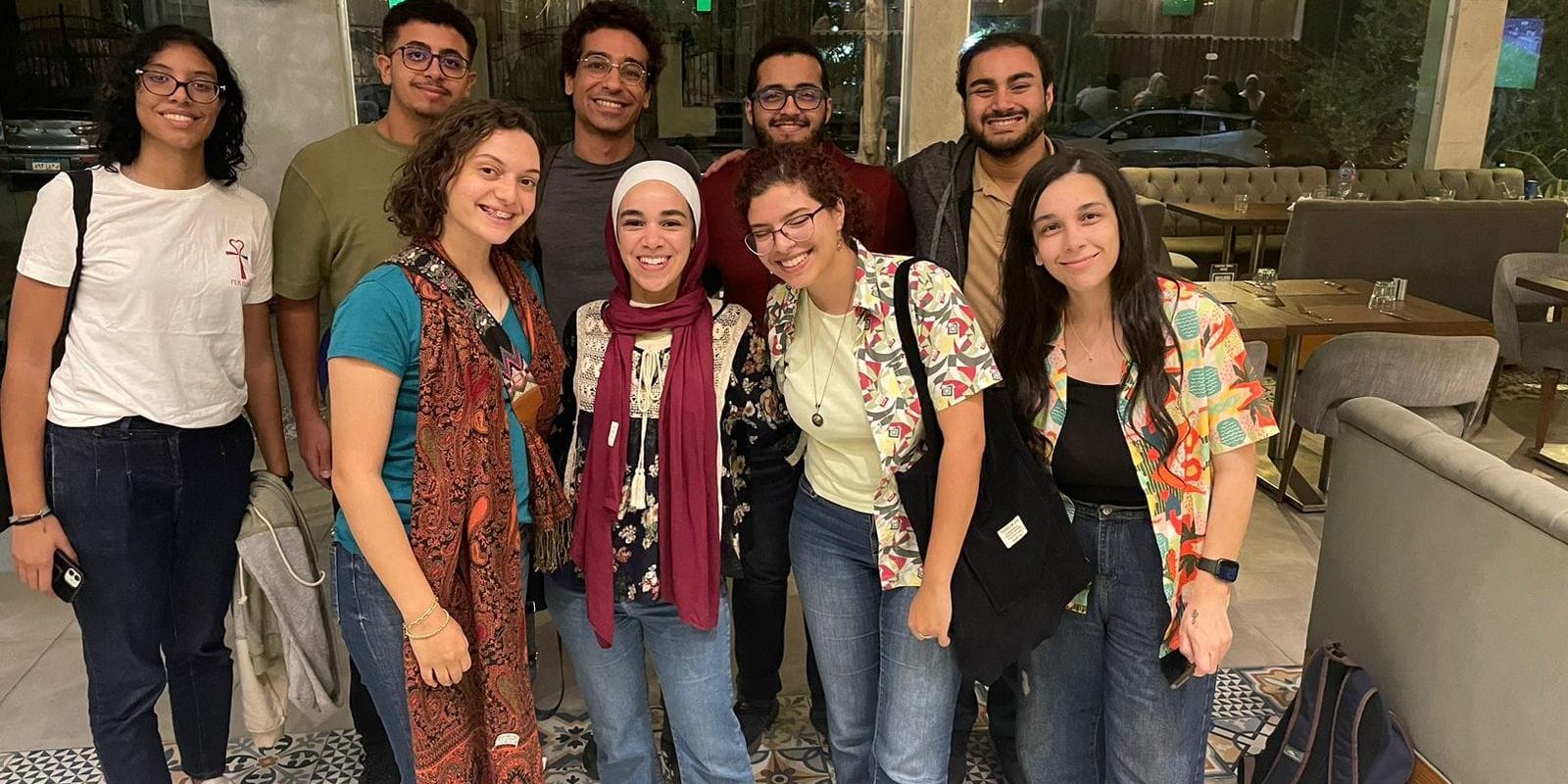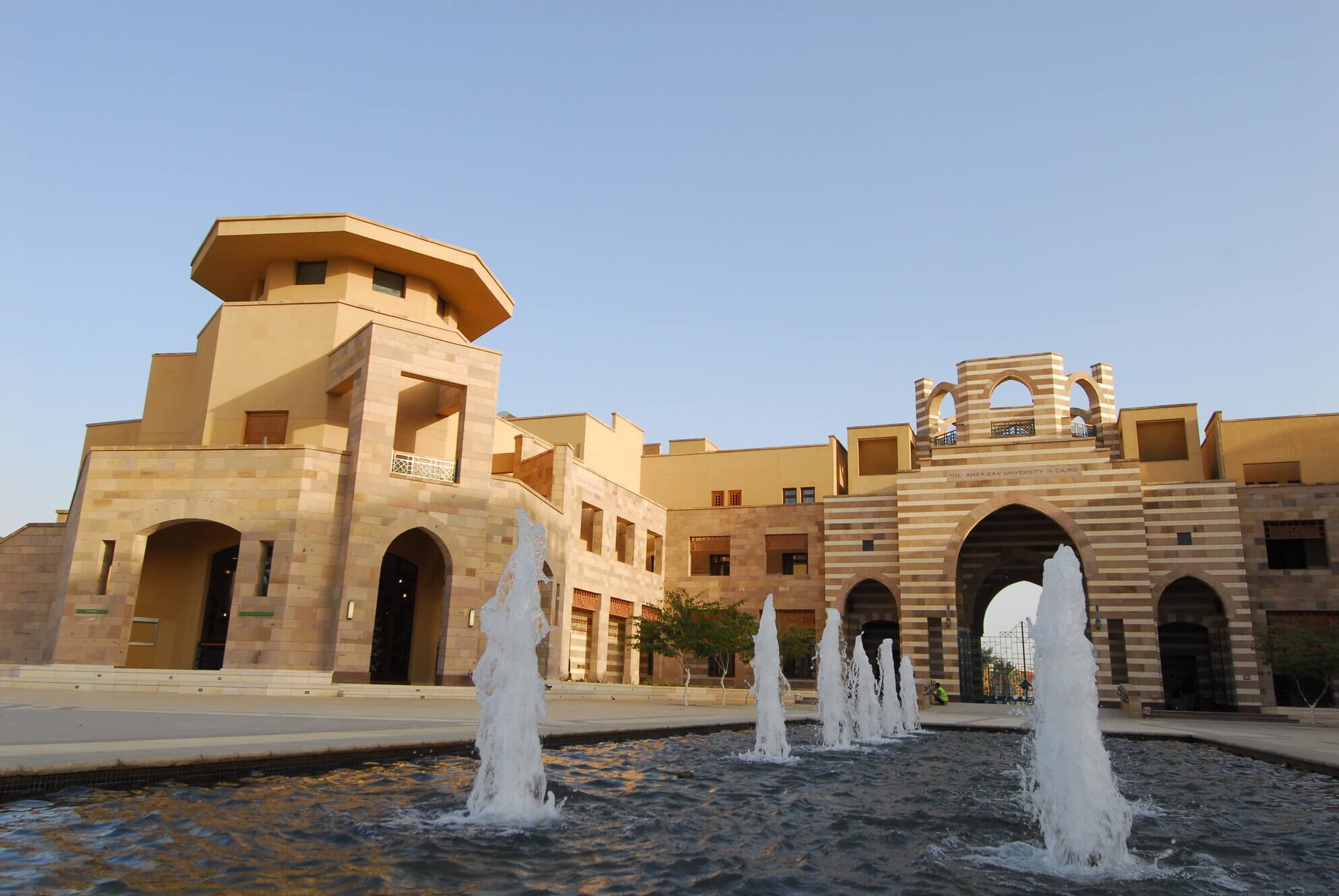
AUC Students Awarded the Global Most Novel Idea at the Heart Hackathon in Texas
March 25, 2024, Cairo- A team of 27 undergraduate and graduate students at The American University in Cairo (AUC) won the award for the most novel idea at the international Heart Hackathon, the world’s first Total Artificial Heart (TAH) design competition. Held in Dallas, Texas by the International Society for Mechanical Circulatory Support (ISMCS), the competition finals drew student-led teams from across the globe to push the boundaries of cardiovascular innovation. The AUC team, named Peribsen, won the award for their groundbreaking approach to artificial heart design. It is the only Egyptian, Arab, and African team in the competition, and it competed against nine teams from around the globe. Their artificial heart prototype aims to revolutionize cardiac care by providing an efficient and sustainable solution for patients with heart failure.
The student-developed artificial heart aims to become an innovative solution and cure for heart failure and a viable alternative to heart transplants, addressing the challenges patients face today, including rejection risks, donor shortage, and high costs. “Heart failure is a chronic disease that involves the weakening of the heart’s muscles and its failure to pump blood to the rest of the body. Here comes the role of the mechanical circulatory support, such as the Total Artificial Heart, that can support heart function and be used for patients with end-stage heart failure,” said Khalil El Khodary ’03 ‘06, associate professor of mechanical engineering at AUC and the team’s mentor.
The team’s device is patient-specific and tailored through CT scans to match each patient’s size and function precisely. The prototype also features artificial muscles, mimicking cardiac tissue performance, naturally pumping blood in a physiologically consistent manner, a feature that most pumps today don’t have. “Wireless energy transfer is also integrated into the pump, eliminating driveline infections, which contribute to patient mortality today,” El Khodary explained.
The team’s market research revealed that cardiovascular diseases caused 64% of premature deaths in Egypt in 2017, making Egypt their primary market, followed by the United States.
Abdel Rahman Sultan ’18, the team’s project manager, an AUC mechanical engineering master’s student, and a member of the Magdi Yacoub Heart Foundation (MYF) Research and Innovation Department, where Peribsen was powered, says that they are gaining real-world problem-solving experience while helping to find solutions to advanced heart failure. “We are thrilled to reach such a big achievement. It reflects the dedication and innovative spirit of Team Peribsen, and we are excited about the potential impact on patient’s lives.”
The team’s prototype not only showcased scientific ingenuity but also presented a comprehensive business plan for implementation. Thus, to create this novel prototype, the team had to include students from a diverse set of majors including mechanical electronics, computer engineering, biology, communications, media arts and graphic design.
“Working with people from such diverse majors allowed me to understand how they think and gave me a better perspective on how to approach certain problems,” says Nour Makhlouf, head of the business and operations team in Peribsen and a double major student in communication and media arts and English literature.
For Aliaa Moussa, a mechanical engineering student and member of the design and computational modeling team in Peribsen, the conference was an inspiration and an inimitable experience, being brought together with so many bright people from around the world to heal sick hearts. “I got to connect with biomedical engineers and clinical professionals beyond the conference whose conversations were both entertaining and insightful. And it opened up doors of future opportunities for me and my team,” she said.
Looking ahead, Team Peribsen plans to participate in the next Heart Hackathon, aiming to attract further attention to their evolving designs. “The device, although successful in its first iteration, will undergo further improvements and testing in the second iteration of the competition,” said Sultan.
El Khodary expressed immense pride in his students' accomplishments, describing the achievement as profoundly rewarding, as it bolstered their confidence in leading and developing complex devices. “Such visibility could raise awareness in our local community as well, where many people do not know that Total Artificial Hearts exist, being not used commercially in Egypt Today.”
The team’s success reflects AUC’s commitment to fostering innovation and providing students with the resources to transform their ideas into reality. The Eltoukhy Learning Factory for Innovation and Entrepreneurship, the first of its kind in Egypt and which the team utilized in creating the prototype, was instrumental in empowering team Peribsen to bring their vision to life. As part of its mission, the factory allows students to strengthen their multi-disciplinary and problem-solving skills, preparing them for careers in diverse professional sectors. It is modeled on learning factories at other universities worldwide.
